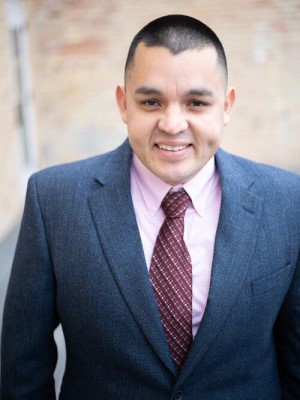Ethics and Boundaries
Rooted in
Core Values
Enhancing care & career.
The long history of human services professionals is rooted in the core values of service, social justice, dignity and worth of the person, importance of human relationships, integrity and competence. We strive to promote these core values in relevant Ethics and Boundaries continuing education offerings.

Biennium 2025-2027
Registration is now open for biennium 2025-2027.

Ethics & Boundaries: Practicing Self-Care in an Era of Moral Distress
Your Choice of:
Fridays, May 2, 2025, April 24, 2026 or January 29, 2027 (All Dates Virtual)
8:30 a.m.-12:30 p.m.
Fee: $109
In today's complex and demanding human services landscape, practitioners often find themselves navigating ethical dilemmas and encountering situations that can lead to moral distress. This training course is designed to equip professionals in the field with the knowledge, tools and strategies to address these ethical challenges while prioritizing their own well-being. The course provides guidance on maintaining healthy boundaries in client interactions, organizational dynamics and professional relationships. Participants learn how to navigate ethical dilemmas with integrity and compassion, while safeguarding their own mental health. Course objectives will be established through a combination of interactive lectures, group discussions and practical exercises.
- Recognize the practice of human services and its impact on moral distress and burnout.
- Develop effective self-care strategies to mitigate burnout.
- Utilize the NASW Code of Ethics and navigate ethical dilemmas of self-care with integrity and resilience.
Continuing Education: 0.4 CEUs/4 CEHs

Sheng Lee Yang
Sheng Lee Yang is a practicing Licensed Clinical Social Worker, President and Executive Director for Us 2 Behavioral Health Care.Her professional experiences include direct care and leadership positions in public, private, government and nonprofit institutions. Her personal and professional experiences helped cultivate a vision to integrate social justice and cultural humility into mental health. She teaches graduate level courses in clinical mental health and diversity and inclusion.

Ethics & Boundaries: Advocacy in Action—Embracing Leadership Opportunities in an Evolving Healthcare Environment
Your Choice of:
Wednesdays, November 12, 2025, March 18, 2026 or November 18, 2026 (All Dates Virtual)
12:30-4:30 p.m.
Fee: $109
Regardless of our “official” title – as professionals, we each have a leadership role to play as advocates for the improved delivery of care. The pandemic highlighted the inequitable impact of our fragmented system, while the ongoing turbulence of our socio-economic and political environments continues to influence how care is delivered. This session will invite participants to identify their motivation for this work and reflect upon our role as agents of change. We will identify advocacy and leadership opportunities to bring the voice of those we serve into the conversation as healthcare is being reimagined. And we will explore a range of concrete steps that we might take to enhance our professionalism and build resilience during times of systemic change.
- Identify personal and professional motivations for your work.
- Reflect on your role as change agents, advocates and leaders who bring the voice of those we serve into the conversation as the delivery of healthcare is being reimagined.
- Consider at least two concrete steps that you might take to increase your professionalism and build resiliency in the face of ongoing systemic changes.
Continuing Education: 0.4 CEUs/4 CEHs

Shirley Green-Otis
Shirley Otis-Green, MSW, MA, ACSW, LCSW, OSW-CE, FNAP, FAOSW, is a licensed clinical social worker and the founder of and consultant for Collaborative Caring.She is an internationally recognized speaker on quality of life, palliative care, leadership development, and the creation of meaningful organizational change. She focuses her career on delivering culturally sensitive, person-centered and family-focused inter-professional palliative care.

Ethics & Boundaries: Crisis De-escalation & Interventions in Healthcare
Your Choice of: Fridays, February 6, 2026, November 6, 2026 or
January 15, 2027 (All Dates Virtual)
8:30 a.m.-12:30 p.m.
Fee: $109
This session is designed to equip health professionals with essential skills and strategies to effectively manage and de-escalate crisis situations in any setting. We will focus on fostering a safe and supportive environment while addressing the needs of individuals in distress and the ethical implications of situations. Participants will learn to recognize signs of escalating crises, employ evidence-based techniques to defuse tension and prioritize the emotional well-being and safety of clients and provider alike.
- Identify common triggers that escalate crisis situations.
- Explore de-escalation principles, including active listening, empathy, and validation.
- Understand the importance of personal safety and boundaries while managing crisis situations.
Continuing Education: 0.4 CEUs/4 CEHs

Ignacio Enriquez Jr.
Ignacio Enriquez Jr., MSE, LPC, was a fifteen-year police officer in Wisconsin and has four years of experience as a Juvenile Corrections Officer in California.Ignacio served as a patrol officer, school resource officer and as a Behavioral Health Officer. As a Behavioral Health Officer, Ignacio was responsible for conducting crisis interventions, safety planning and connecting citizens to mental health services. Ignacio is a trained hostage crisis negotiator and served as the department’s main resource of mental health and substance abuse information and training.
Special Topics
We also offer courses on special topics, developed to promote awareness and sensitivity of cultural, ethnic, socioeconomic and neurodiversity.

Need Guidance?
If you need additional guidance, please contact Kayle Petitjean, Office of Professional Continuing Education, at professionaled@uwgb.edu or (920) 465-2642.